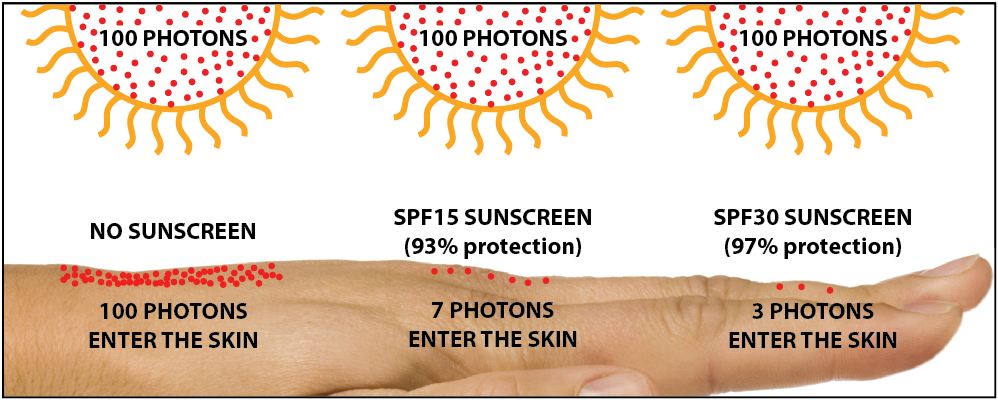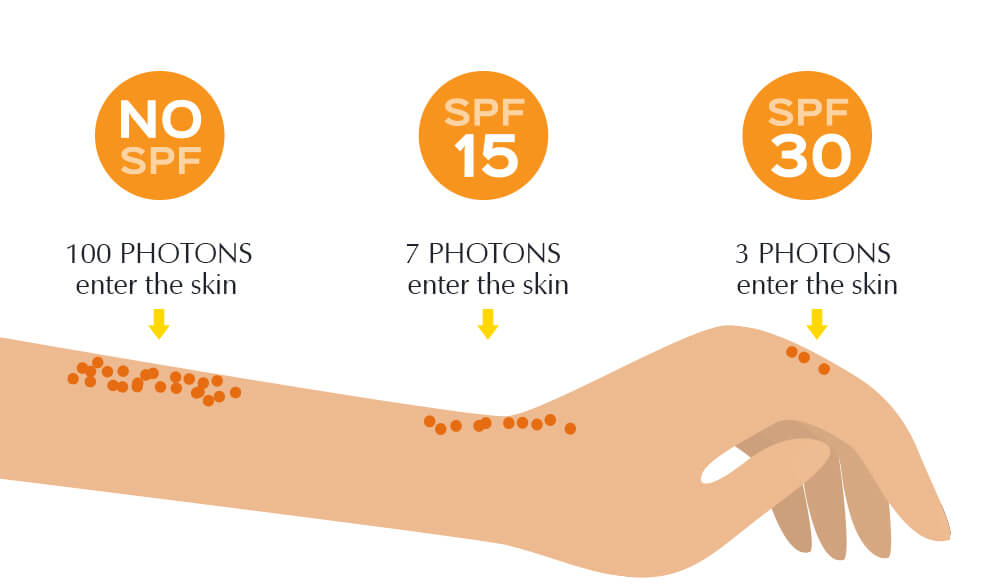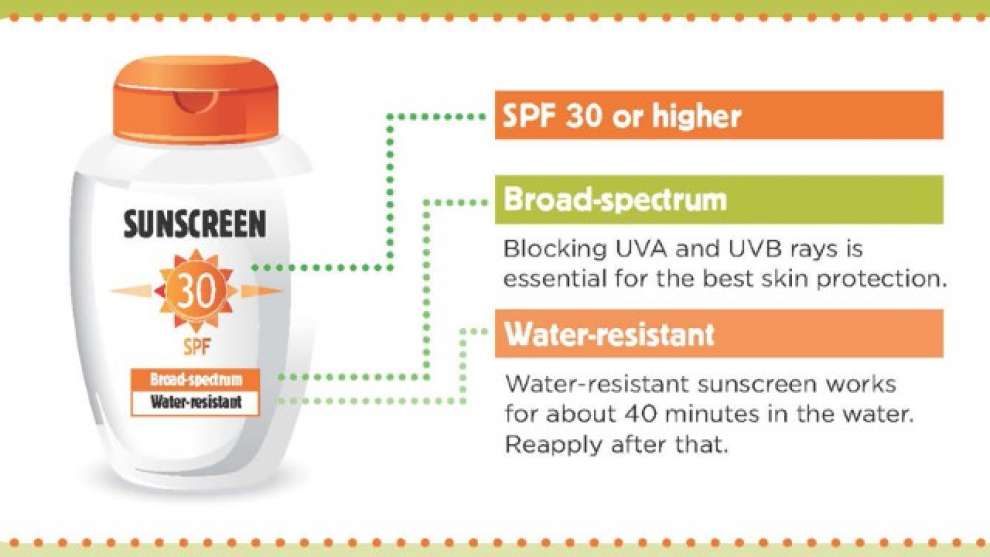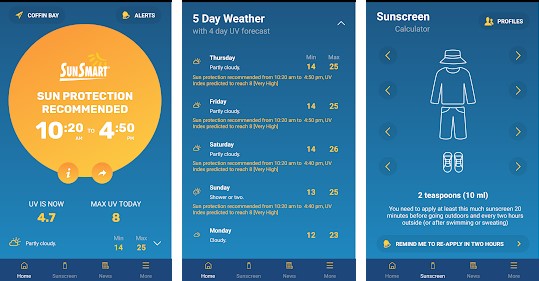Sun Protection Factor (SPF) is not merely a buzzword in the realm of skincare but a critical component that plays a fundamental role in maintaining skin health and preventing a variety of skin-related issues. In recent years, awareness about the damaging effects of ultraviolet (UV) radiation from the sun has grown significantly, prompting more people to prioritize sun protection as an essential part of their daily skincare routine. This essay delves into the multifaceted importance of SPF, exploring its benefits, the science behind it, and practical implications for skincare regimens.
Understanding SPF: What Does it Mean?
SPF, commonly found on sunscreen labels, stands for Sun Protection Factor. It is a measure of how well a sunscreen protects the skin from UVB rays, which are primarily responsible for causing sunburns, skin damage, and an increased risk of skin cancer. The SPF number indicates the level of protection against UVB rays, with higher numbers indicating greater protection. For instance, SPF 15 filters out approximately 93% of UVB rays, while SPF 30 filters out about 97%, and SPF 50 filters out about 98%.
The Science Behind UV Radiation and Skin Damage
To comprehend the significance of SPF, one must first understand the nature of UV radiation and its impact on the skin. UV radiation consists of UVA, UVB, and UVC rays, although UVC is largely absorbed by the ozone layer and does not reach the Earth’s surface. UVA rays penetrate deep into the skin, causing premature ageing wrinkling, and contributing to skin cancer development. UVB rays primarily affect the outer layer of the skin, causing sunburns and directly contributing to skin cancer.
Excessive and unprotected exposure to UV radiation damages the DNA of skin cells, leading to mutations that can result in skin cancer over time. Moreover, UV exposure accelerates the breakdown of collagen and elastin fibres in the skin, which are crucial for maintaining skin elasticity and firmness. This breakdown manifests as wrinkles, sagging skin, and uneven skin tone, making UV protection imperative for maintaining youthful and healthy-looking skin.
Benefits of Using SPF in Skincare
1. Prevention of Sunburns and Skin Damage
The primary benefit of SPF is its ability to prevent sunburns, which occur due to overexposure to UVB rays. Sunburns not only cause discomfort but also signify acute skin damage. By applying sunscreen with an adequate SPF, individuals can significantly reduce their risk of sunburn and the associated pain and skin peeling.
2. Reduction of Skin Cancer Risk
Skin cancer, including melanoma, basal cell carcinoma, and squamous cell carcinoma, is directly linked to UV exposure. Regular use of sunscreen with a high SPF helps mitigate this risk by blocking UV radiation and preventing DNA damage that can lead to cancerous mutations. Studies have shown that consistent sunscreen use can reduce the incidence of melanoma, the deadliest form of skin cancer.
3. Prevention of Premature Aging
UV radiation accelerates the ageing process of the skin, leading to premature wrinkles, fine lines, age spots, and sagging skin. By incorporating SPF into their daily skincare routine, individuals can protect their skin from photoaging caused by UVA and UVB rays. This preservation of skin integrity promotes a youthful appearance and maintains skin elasticity and firmness over time.
4. Maintenance of Even Skin Tone
Hyperpigmentation, such as dark spots and melasma, can result from UV exposure, particularly in individuals with darker skin tones. SPF helps prevent the worsening of existing pigmentation irregularities and inhibits the formation of new ones by shielding the skin from UV-induced melanin production. This leads to a more even skin tone and reduces the appearance of discolouration and sunspots.
Incorporating SPF into Daily Skincare Regimens
The effectiveness of SPF in skincare depends on its correct application and integration into daily routines. Dermatologists recommend applying a broad-spectrum sunscreen with SPF 30 or higher every day, regardless of weather conditions or skin type. Sunscreen should be generously applied to all exposed areas of the skin, including the face, neck, ears, hands, and any other uncovered areas.
Moreover, sunscreen should be reapplied every two hours when outdoors or immediately after swimming or sweating, as its effectiveness diminishes over time and with exposure to water. Individuals with sensitive skin or specific dermatological conditions should opt for sunscreens formulated for their needs, such as mineral sunscreens that contain zinc oxide or titanium dioxide.
Overcoming Misconceptions and Barriers to SPF Usage
Despite the well-documented benefits of SPF, misconceptions and barriers persist that hinder its widespread adoption. Some individuals mistakenly believe that sunscreen is unnecessary on cloudy days or during winter months when UV radiation is less intense. However, UV rays penetrate through clouds and can reach the Earth’s surface year-round, making sunscreen essential regardless of weather conditions.
Others may avoid sunscreen due to concerns about its texture, scent, or potential for causing breakouts. Fortunately, advancements in sunscreen formulations have led to the development of lightweight, non-comedogenic, and fragrance-free options suitable for various skin types and preferences. By exploring different sunscreen formulations and textures, individuals can find a product that meets their skincare needs without compromising on efficacy or comfort.
Embracing SPF for Healthy Skin
SPF is not merely a cosmetic choice but a crucial aspect of skin care that contributes to overall skin health and well-being. By protecting against sunburns, reducing the risk of skin cancer, preventing premature ageing, and maintaining an even skin tone, SPF plays a pivotal role in preserving the youthful appearance and resilience of the skin. Incorporating sunscreen with sufficient SPF into daily skincare routines is a proactive measure that individuals can take to safeguard their skin from the harmful effects of UV radiation and promote long-term skin health.
As awareness continues to grow and skincare formulations evolve, the integration of SPF into daily routines remains a cornerstone of effective skincare practices. By prioritizing sun protection and embracing the benefits of SPF, individuals can nurture their skin and enjoy the confidence that comes with healthy, radiant skin throughout their lives.
This essay provides a comprehensive overview of the importance of SPF in skincare, covering its benefits, the science behind its efficacy, practical application tips, and strategies to overcome common barriers.
Advances in Sunscreen Technology
In recent years, significant advancements have been made in sunscreen technology, enhancing both the efficacy and user experience of SPF products. These innovations address various concerns and preferences, making sunscreen applications more appealing and effective for consumers.
1. Broad-Spectrum Protection
Modern sunscreens often provide broad-spectrum protection, which means they shield the skin from both UVA and UVB rays. This comprehensive protection is crucial because both types of UV radiation contribute to skin damage, including premature ageing and skin cancer. Broad-spectrum sunscreens typically contain a combination of active ingredients that work synergistically to absorb, scatter, or reflect UV rays before they can penetrate the skin.
2. Lightweight and Non-Greasy Formulations
One common barrier to regular sunscreen use is the perception that sunscreens are heavy, greasy, or leave a white cast on the skin. To address these concerns, sunscreen manufacturers have developed lightweight formulations that absorb quickly into the skin without leaving a residue. These formulations are often labelled as “non-greasy” or “matte finish,” making them suitable for individuals with oily or combination skin types.
3. Mineral Sunscreens
Mineral sunscreens, also known as physical sunscreens, use active ingredients such as zinc oxide and titanium dioxide to create a barrier on the skin’s surface that reflects and scatters UV radiation. These ingredients are less likely to cause skin irritation or trigger allergic reactions, making mineral sunscreens a preferred choice for individuals with sensitive skin or specific dermatological conditions.
4. Water-Resistant Sunscreens
Water-resistant sunscreens are designed to maintain their effectiveness even after exposure to water, such as swimming or sweating. These formulations adhere to stringent testing standards to ensure they provide the claimed level of protection for a specified period while exposed to water. Water-resistant sunscreens are recommended for outdoor activities and sports where perspiration or water exposure is likely.
5. Tinted and Cosmetically Elegant Formulations
To cater to consumer preferences for multifunctional skincare products, some sunscreens are formulated with added benefits such as tinted coverage or cosmetically elegant textures. Tinted sunscreens offer additional coverage to even out skin tone and reduce the appearance of imperfections, making them popular among individuals who prefer a simplified skincare routine. Cosmetically elegant sunscreens are formulated to feel lightweight, blend seamlessly into the skin, and serve as a suitable base for makeup application.
Addressing Common Myths and Misconceptions
Despite the advancements in sunscreen technology and the widespread acknowledgement of its benefits, several myths and misconceptions about SPF persist among consumers. Addressing these misconceptions is crucial to promoting informed decision-making and encouraging regular sunscreen use for optimal skin health.
1. Myth: “I don’t need sunscreen on cloudy days.”
Fact: UV radiation penetrates through clouds and can reach the Earth’s surface even on overcast days. Therefore, sunscreen should be applied daily, regardless of cloud cover or weather conditions.
2. Myth: “I have darker skin, so I don’t need sunscreen.”
Fact: While individuals with darker skin tones have more natural protection against UV radiation due to higher levels of melanin, they are still susceptible to sun damage, including sunburns, premature ageing, and skin cancer. Sunscreen is essential for everyone, regardless of skin colour.
3. Myth: “Sunscreen is only necessary during summer months.”
Fact: UV radiation is present year-round and can cause skin damage regardless of the season. Sunscreen should be incorporated into daily skin care routines throughout the year to maintain consistent protection against UV exposure.
4. Myth: “Sunscreen blocks vitamin D absorption.”
Fact: While sunscreen reduces vitamin D synthesis in the skin, adequate levels of vitamin D can still be obtained through diet and supplements. The benefits of sun protection far outweigh the potential risks of vitamin D deficiency, which can be managed through balanced sun exposure and nutritional intake.
Encouraging Sun-Safe Practices
In addition to sunscreen application, adopting sun-safe practices further enhances protection against UV radiation and promotes overall skin health. These practices complement the use of SPF and contribute to a comprehensive approach to sun protection.
1. Seek Shade: Limiting direct sun exposure, especially during peak hours (10 a.m. to 4 p.m.), reduces the intensity of UV radiation and lowers the risk of sunburn and skin damage.
2. Wear Protective Clothing: Clothing that covers the skin, such as long-sleeved shirts, wide-brimmed hats, and sunglasses with UV protection, offers additional physical barriers against UV exposure.
3. Use Sunscreen Daily: Incorporate sunscreen with a minimum SPF of 30 into your daily skincare routine, applying it generously to all exposed areas of the skin. Reapply sunscreen every two hours or immediately after swimming or sweating.
4. Perform Regular Skin Checks: Monitor your skin for changes in moles, freckles, or other abnormalities, and consult a dermatologist promptly if you notice any concerning developments.
Embracing a Sun-Smart Lifestyle
In conclusion, the importance of SPF in skincare extends beyond cosmetic benefits to encompass critical aspects of skin health and wellness. By understanding the science behind SPF, leveraging advancements in sunscreen technology, dispelling myths, and adopting sun-safe practices, individuals can proactively protect their skin from UV damage and promote long-term skin resilience.
Embracing a sun-smart lifestyle involves integrating SPF into daily skincare routines, respecting the sun’s power, and making informed choices that prioritize skin health. Through education, advocacy, and personal commitment, individuals can empower themselves to maintain healthy, radiant skin throughout their lives and reduce the incidence of sun-related skin issues for future generations.
By embracing SPF as a cornerstone of skincare, individuals not only invest in their current well-being but also cultivate habits that contribute to lifelong skin protection and vitality. Together, we can foster a culture of sun awareness and promote the adoption of sun-safe practices for healthier, happier skin.
The Role of Education and Advocacy
Effective education and advocacy play pivotal roles in promoting the importance of SPF in skincare and encouraging widespread adoption of sun-safe practices. By raising awareness about the risks of UV radiation and the benefits of SPF, individuals, healthcare professionals, and organizations can empower communities to prioritize skin health and take proactive measures to reduce sun-related skin damage.
1. Public Health Campaigns
Public health campaigns play a crucial role in disseminating information about sun protection and SPF use. These campaigns often utilize various platforms, including social media, television, print media, and community outreach programs, to reach diverse audiences and promote sun-safe behaviours. Key messages typically emphasize the importance of daily sunscreen use, the benefits of seeking shade, wearing protective clothing, and performing regular skin checks.
2. Dermatologist Recommendations
Dermatologists and skincare professionals play an essential role in educating their patients about the significance of SPF in skincare and providing personalized recommendations based on individual skin types and concerns. Through consultations, dermatologists can assess patients’ sun exposure habits, recommend appropriate sunscreen formulations, and address any misconceptions or barriers to sunscreen use.
3. Integration into School Curricula
Integrating sun safety education into school curricula helps instil lifelong habits of SPF use and sun protection among children and adolescents. Educational programs can teach students about the harmful effects of UV radiation, proper sunscreen application techniques, and the importance of seeking shade and wearing protective clothing during outdoor activities.
4. Advocacy for Policy Changes
Advocacy efforts aimed at enacting policy changes can further promote sun-safe practices and increase access to SPF products in communities. These efforts may include supporting legislation that mandates sunscreen availability in schools, workplaces, recreational facilities, and public spaces, as well as advocating for sunscreen labelling regulations that ensure accurate SPF labelling and ingredient transparency.
The Global Impact of SPF Awareness
The importance of SPF in skincare extends beyond individual health benefits to encompass broader societal and global impacts. By promoting SPF awareness and encouraging sun-safe practices worldwide, we can collectively reduce the incidence of sunburns, skin cancer, and premature ageing, thereby alleviating the burden on healthcare systems and improving overall public health outcomes.
1. Reducing Healthcare Costs
Preventive measures such as SPF use can significantly reduce healthcare costs associated with the treatment of sun-related skin conditions, including skin cancer diagnosis, surgery, and ongoing medical care. By investing in sun protection and SPF education, communities can mitigate the economic burden of treating preventable skin diseases and allocate resources more effectively toward public health initiatives.
2. Promoting Environmental Sustainability
The production and disposal of sunscreen products can impact environmental sustainability, particularly concerning marine ecosystems and coral reef health. Increasing awareness about reef-safe sunscreens, which are formulated to minimize harmful effects on marine life, encourages responsible sunscreen use and promotes environmental stewardship among consumers.
3. Global Collaboration and Partnership
Addressing sun protection challenges requires global collaboration and partnership among governments, healthcare organizations, non-governmental organizations (NGOs), industry stakeholders, and community advocates. By sharing best practices, exchanging research findings, and collaborating on public health initiatives, stakeholders can maximize the impact of SPF awareness campaigns and promote equitable access to sun protection resources worldwide.
Looking Ahead: Innovations and Challenges
As the field of skincare continues to evolve, ongoing innovations in SPF technology and formulations present opportunities to enhance sun protection efficacy and user experience. Advances in sunscreen ingredients, delivery systems, and UV detection technologies hold promise for improving SPF products’ performance, durability, and user acceptance.
1. Next-Generation SPF Formulations
Ongoing research and development efforts focus on exploring novel sunscreen ingredients and formulations that offer enhanced UV protection, longer-lasting efficacy, and improved cosmetic appeal. These innovations may include encapsulated sunscreen actives, antioxidant-rich formulations, and customizable SPF solutions tailored to individual skin needs and preferences.
2. Digital Tools and UV Monitoring Devices
The integration of digital tools and UV monitoring devices into skincare routines enables consumers to track UV exposure levels, receive real-time sun protection recommendations, and make informed decisions about SPF applications and sun-safe behaviours. These advancements empower individuals to manage their sun exposure effectively and optimize their skincare regimens based on personalized UV data.
3. Addressing Access and Equity
Achieving universal access to effective sun protection remains a critical challenge, particularly in underserved communities and regions with limited resources. Addressing barriers to sunscreen access, affordability, and awareness requires collaborative efforts to expand distribution channels, promote affordability initiatives, and deliver culturally relevant SPF education to diverse populations.
Conclusion: Embracing SPF for Healthy, Resilient Skin
In conclusion, the importance of SPF in skincare transcends individual beauty goals to encompass essential aspects of skin health, public health, and environmental sustainability. By integrating SPF into daily skincare routines, promoting sun-safe behaviours advocating for policy changes, and fostering global collaboration, we can collectively mitigate the impact of UV radiation and empower individuals to maintain healthy, resilient skin throughout their lives.
Embracing SPF as a cornerstone of skincare reflects a commitment to proactive health management, informed decision-making, and environmental stewardship. By leveraging advancements in SPF technology, addressing challenges to sunscreen access and equity, and advocating for sun protection awareness, we can create a future where sun-safe practices are universally embraced, and the benefits of SPF are accessible to all.
Together, we can cultivate a culture of SPF awareness, promote lifelong sun protection habits, and safeguard skin health for current and future generations. By embracing the importance of SPF in skincare, we not only nurture our skin’s natural beauty but also prioritize its long-term health and vitality in a sun-smart world.
Addressing Consumer Preferences and Needs
In the dynamic landscape of skincare, addressing consumer preferences and needs is crucial for promoting the widespread adoption of SPF and encouraging consistent sun protection habits. Understanding consumer behaviours, preferences, and concerns allows skincare brands and healthcare professionals to develop tailored solutions that resonate with diverse audiences and promote positive skincare outcomes
1. Customized SPF Solutions
Personalization in skincare involves offering customized SPF solutions that cater to individual skin types, preferences, and lifestyle factors. This approach may include SPF formulations designed for specific skin concerns, such as sensitive skin, acne-prone skin, or anti-ageing benefits. By providing consumers with options that align with their unique skincare needs, brands can enhance user satisfaction and promote long-term adherence to sun protection routines.
2. Transparency and Ingredient Safety
Transparency in SPF labelling and ingredient safety are essential considerations for today’s informed consumers. Increasing awareness about sunscreen ingredients, potential allergens, and environmental impacts empowers individuals to make informed choices and prioritize products that align with their values and safety preferences. Brands that prioritize ingredient transparency and safety testing contribute to consumer trust and confidence in SPF products.
3. Education and Empowerment
Education plays a pivotal role in empowering consumers to make informed decisions about SPF and sun protection. Effective educational initiatives provide accessible, evidence-based information about the benefits of SPF, proper sunscreen application techniques, and sun-safe behaviours By equipping individuals with knowledge and skills to protect their skin effectively, skincare brands and healthcare professionals empower consumers to prioritize their skin health and well-being.
Leveraging Digital Platforms and Technology
Digital platforms and technology innovations present opportunities to enhance SPF awareness, engagement, and accessibility among consumers. Leveraging digital tools, social media platforms, and mobile applications enables skincare brands to reach diverse audiences, deliver targeted SPF education, and facilitate interactive experiences that promote sun-safe behaviours
1. Mobile Apps for SPF Tracking
Mobile applications designed for SPF tracking and UV exposure monitoring empower users to manage their sun protection routines effectively. These apps may offer features such as sunscreen application reminders, real-time UV index updates, and personalized sun protection recommendations based on location and skin type. By integrating digital tools into daily skincare regimens, individuals can optimize SPF use and enhance their overall sun protection practices.
2. Virtual Skincare Consultations
Virtual skincare consultations provide consumers with convenient access to expert advice and personalized recommendations for SPF products and sun protection strategies. Skincare professionals can conduct virtual assessments, address skincare concerns, and recommend SPF formulations tailored to individual preferences and skin needs. This digital approach to skincare consultation enhances accessibility, promotes consumer engagement, and fosters positive skincare outcomes.
Glowing Bride: Get the Perfect Bridal Makeup Look for Your Special Day
3. Social Media and Influencer Engagement
Social media platforms and influencer collaborations offer skincare brands opportunities to amplify SPF awareness and promote sun-safe behaviours among their followers. Partnering with influencers who advocate for sun protection and share educational content about SPF encourages meaningful conversations, enhances brand credibility, and cultivates a community committed to prioritizing skin health. By leveraging social media as a platform for SPF education and advocacy, brands can reach diverse demographics and foster positive attitudes toward sun protection.
Future Trends and Innovations in SPF Skincare
Looking ahead, ongoing advancements in SPF technology and skincare innovations are poised to shape the future of sun protection and skincare practices. Emerging trends focus on enhancing SPF efficacy, sustainability, and user experience to meet evolving consumer preferences and address global skincare challenges.
1. Sustainable SPF Formulations
Sustainable skincare practices are increasingly prioritized by consumers who seek eco-friendly SPF options that minimize environmental impact. Innovations in sustainable SPF formulations may include biodegradable sunscreen ingredients, packaging made from recyclable materials, and product formulations that support reef-safe practices. By integrating sustainability into SPF skincare solutions, brands can align with consumer values and contribute to environmental conservation efforts.
2. Next-Generation Sunscreen Technology
Next-generation sunscreen technology explores advanced formulations and delivery systems that enhance SPF efficacy, durability, and cosmetic appeal. Innovations may include encapsulated sunscreen actives for prolonged UV protection, antioxidant-rich formulations to combat oxidative stress, and transparent SPF solutions that eliminate white cast and improve skin compatibility. These advancements aim to optimize sun protection efficacy while meeting consumer demands for lightweight, comfortable, and aesthetically pleasing SPF products.
3. Collaborative Research and Development
Collaborative research and development initiatives drive innovation in SPF skincare by fostering partnerships between skincare brands, research institutions, and technology experts. By sharing scientific insights, conducting clinical studies, and exploring novel approaches to SPF formulation and application, stakeholders can accelerate progress in sun protection technology and address emerging skincare needs. Collaborative efforts pave the way for groundbreaking discoveries, new product developments, and evidence-based advancements that benefit global skincare practices.
Shaping the Future of SPF Skincare
The evolution of SPF in skincare reflects ongoing advancements, consumer preferences, and global initiatives aimed at promoting sun protection and prioritizing skin health. By addressing consumer needs, leveraging digital platforms, embracing sustainability, and advancing sunscreen technology, skincare brands and healthcare professionals can empower individuals to adopt sun-safe behaviours to enhance SPF efficacy and cultivate healthy, resilient skin.
Embracing the future of SPF skincare involves embracing innovation, promoting education, and fostering collaborative efforts that drive positive change in sun protection practices worldwide. By collectively advocating for SPF awareness, supporting sustainable skincare solutions, and embracing technological advancements, we can shape a future where sun protection is universally embraced, and the benefits of SPF are accessible to all individuals, regardless of skin type or geographical location.
Together, we can pave the way for a sun-smart world where skincare excellence, innovation, and environmental stewardship converge to promote lifelong skin health and well-being.










Pingback: Effortless Everyday Makeup Tutorial for Busy Women – THE FAST JOBS